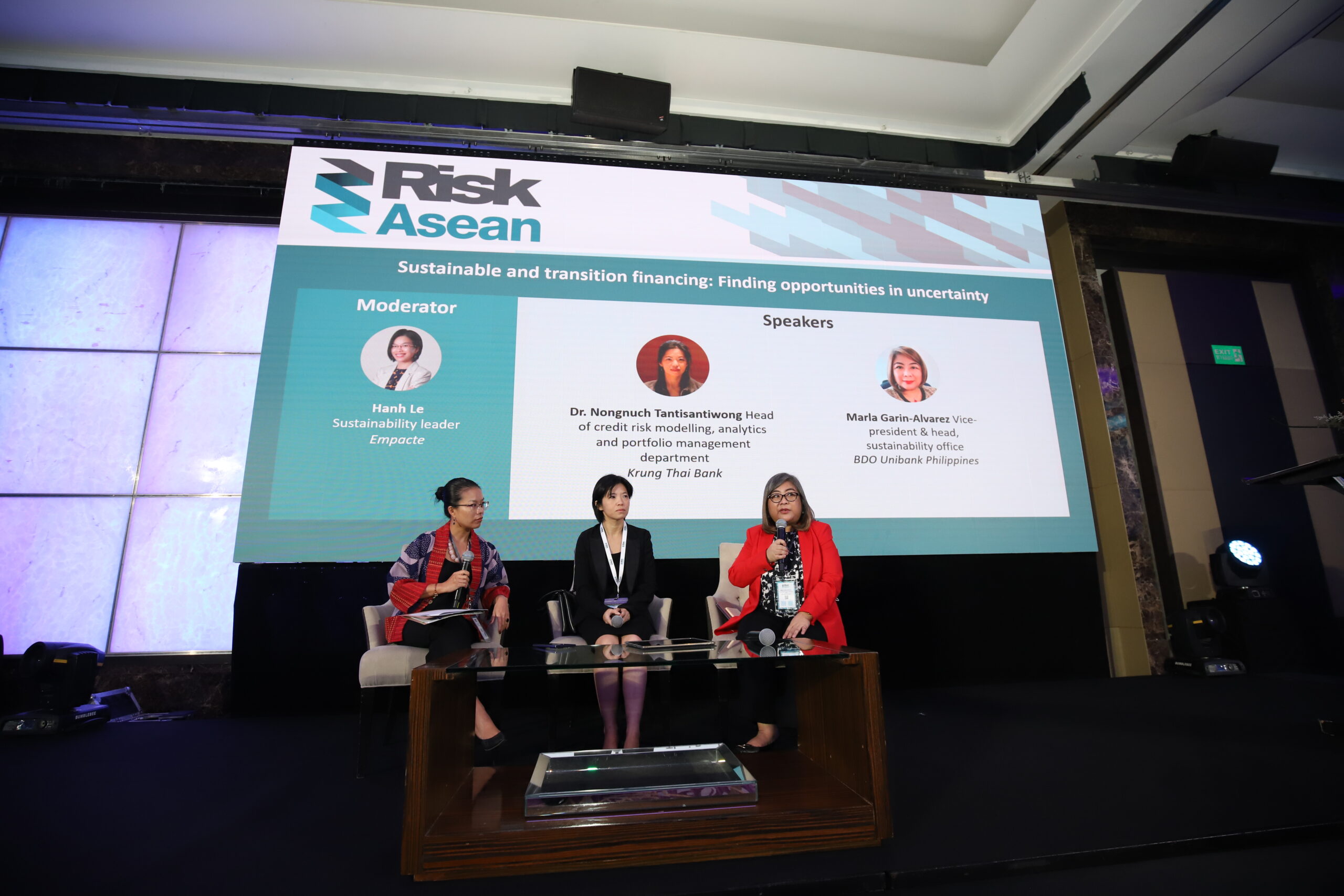
Empacte Shares View on Sustainable & Transition Finance at Risk ASEAN 2023
By Hanh Le | 25 April 2023
On April 25, 2023, Ms. Hanh Le, CEO of Empacte, joined leading financial institutions in the region and discussed risks and opportunities with regards to sustainable and transition finance at the Risk ASEAN 2023 event, held in Bangkok, Thailand.
The event featured experienced risk experts from banks and institutions in the region such as Citibank, Standard Chartered Bank, Krungsri, BDO (Philippines), S&P Global, Moody’s and others gathering to discuss emerging trends in credit risk, regulatory changes, AI, cybersecurity, as well as sustainability and ESG in Southeast Asia.
Together with representatives from the financial industry, Empacte discussed and shared views on key sustainability trends including green finance regulatory developments, transition finance, ESG reporting & disclosure, and skill development strategies to meet increasing demand for sustainability expertise.
1) Green Finance Regulatory Development
The regulatory landscape across Southeast Asia is fast evolving. With different sustainable finance taxonomies emerging in the region, thorough understanding and effective implementation of these taxonomies is highly important to promote transparency and credibility within the financial sector. While different taxonomies allow for certain flexibility to adapt to local contexts, banks and industries will need to attune their strategies to align with these varying frameworks. Hence, harmonization and collaboration between regulatory bodies is highly recommended to ensure consistent standards. Examples of emerging taxonomies in the region include:
- ASEAN Sustainable Finance Taxonomy – Version 1 & Version 2
- Singapore Green & Transition Finance Taxonomy (Final Consultation)
- Thailand Taxonomy – Phase 1 (Draft)
- Malaysia Climate Change and Principle-based Taxonomy (Bank Negara Malaysia)
- Indonesia Green Finance Taxonomy Edition 1.0 – 2022
2) Transition Finance
Transition finance has a critical role in driving sustainable development, especially in emerging economies like those in the region. Transition finance refers to the financial support provided to facilitate the transition of high-emission sectors towards low-carbon and more sustainable business models. Innovative financial instruments and mechanisms, such as green bonds and sustainability-linked loans, are critical. Guidance to banks on transition strategies that can be applied to businesses in the region is highly needed.
3) ESG reporting & disclosure
Over the past few years have witnessed the growing importance of ESG integration in investment decisions and the increasing demand for robust sustainability reporting. Consistency, comparability, and reliability of ESG data is essential. Banks and corporations must also see sustainability reporting and disclosure beyond a mere marketing exercise but rather an important starting point in their journey of integrating sustainability into the business DNA.
4) Sustainability Skill-Development Strategies
Banks and institutions are facing significant challenges posed by skills shortages in the sustainable finance sector. With the increasing demand to meet regulatory requirements (such as climate stress tests) as well as to capture sustainable finance opportunities, banks are grappling with a shortage of skilled professionals who possess the necessary knowledge and expertise. Training programs as well as partnerships between academia and industry are needed to bridge the skills gap.
Risk ASEAN 2023 was a momentous event for Southeast Asia’s financial landscape. By contributing to such dialogues, Empacte aims to shape the future of sustainable finance in the region, fostering collaboration, innovation, and responsible investment practices. As Southeast Asia navigates its sustainable development journey, Empacte stands ready to guide financial institutions and businesses towards a greener future.

